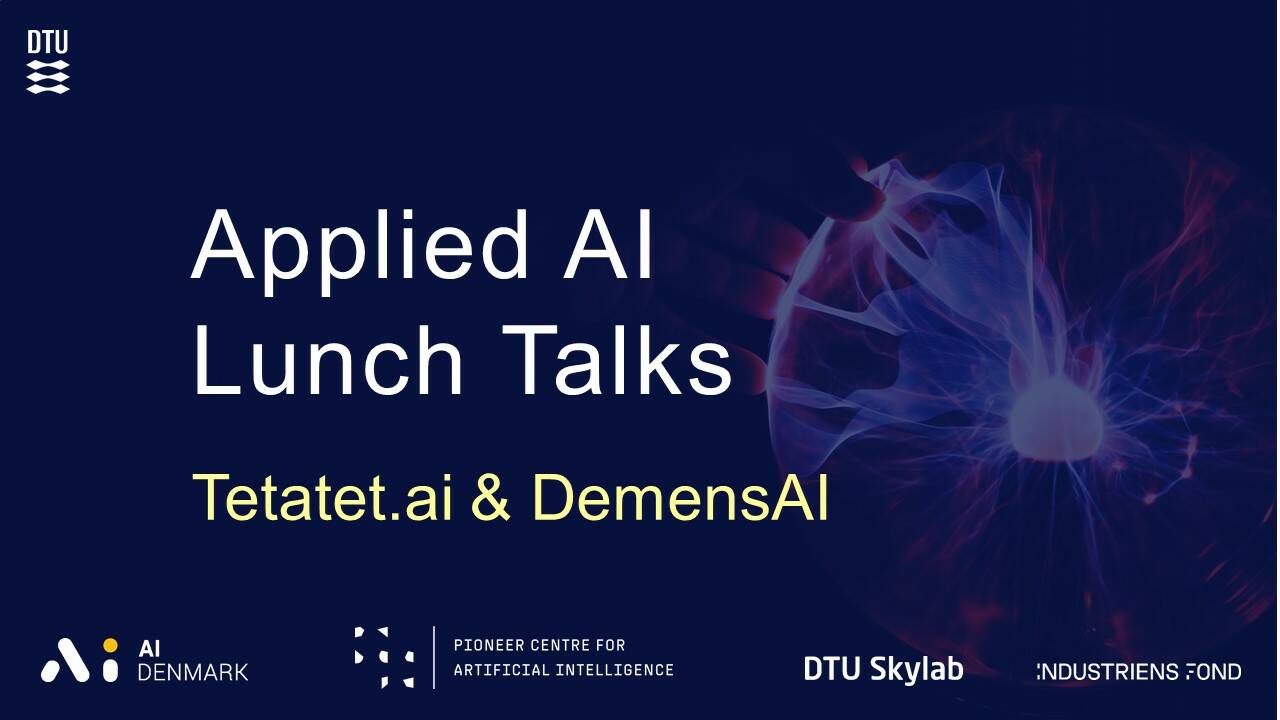Applied AI Lunch Talks - Tetatet.ai and DemensAI
On-demand

Talk 1:
"AI for Mental Health"
This talk presents research in AI for emotion recognition and behavioral coding and how it can be used in mental health. The applications in health include research in psychiatry, an emotionally aware AI coach, and couple therapy. The talk will also discuss ethical concerns like biases in AI.
Talk 1 Speaker:
Line Clemmensen, Co-founder, CTO of Tetatet, Associate Professor at DTU Compute
Line is a Professor at DTU Compute, co-founder and CSO of Tetatet, and co-founding Soil. Her research is focused on machine learning and artificial intelligence with applications in psychiatry, amongst other.
Talk 2:
How can dementia be detected in speech with AI? The DemensAI approach
With over 55 million people affected worldwide and ranking as the 7th leading cause of death, dementia represents a significant health challenge. However, the healthcare system is under enormous pressure and is looking for better tools and innovative solutions to streamline diagnosis without adding to the workload. This talk focuses on how DemensAI offers a passive, AI-driven approach to dementia detection. By analyzing speech in a non-intrusive way, DemensAI helps to lighten the workload for doctors and clinicians. We will discuss the challenges of the current diagnostic system and explore the potential of speech as a window into brain cognition with AI.
Talk 2 Speakers :
Laurine Dargaud, CTO of DemensAI
Laurine is co-founder and CTO of DemensAI. She holds a DTU MSc degree in Human-Centered Artificial Intelligence, and she developed the proof of concept for DemensAI: a speech-based model that can detect Alzheimer's disease based on a voice recording of picture description.
Abhista Partal, CSO of DemensAI
Abhista is co-founder and Chief Scientific Officer of DemensAI. He holds a DTU MSc degree in Autonomous Systems, with a specialization in Explainable AI. Abhista is dedicated to AI research and development at DemensAI, experimenting with the latest speech and language models to improve dementia detection.

